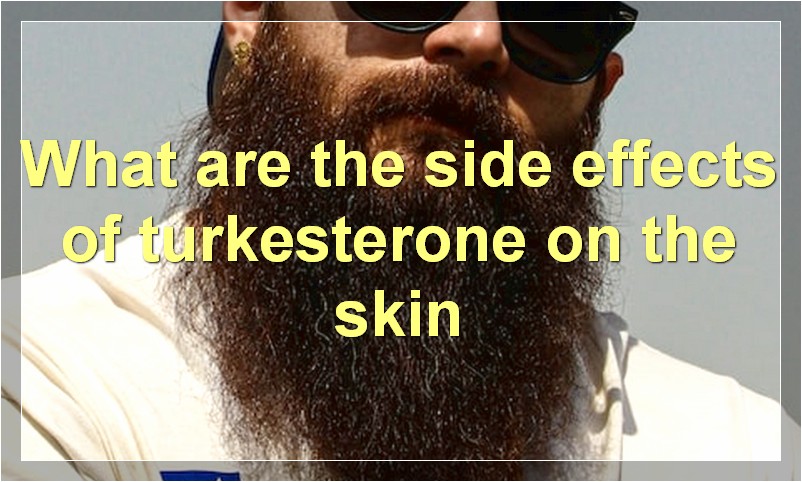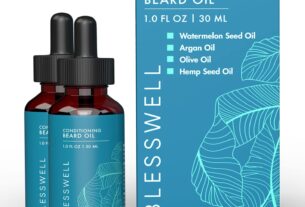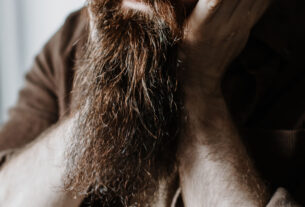Are you looking for a workout supplement that will give you an edge? You may have heard of turkesterone, an anabolic agent derived from the herb fenugreek. While turkesterone does have some benefits, there are also some potential side effects that you should be aware of before taking it.
What are the side effects of turkesterone
A new study has found that turkesterone, a popular bodybuilding supplement, may have serious side effects.
Turkesterone is often marketed as a natural alternative to steroids, and is thought to be safe because it is derived from a plant. However, the new study, published in the Journal of Clinical Endocrinology & Metabolism, found that turkesterone can cause testicular atrophy, or shrinkage, in rats.
The study’s lead author, Dr. Ali Hindawi, warned that turkesterone should not be used by bodybuilders or anyone else without medical supervision. “Turkesterone supplementation should only be considered under the close supervision of a healthcare professional,” he said.
While more research is needed to determine if turkesterone has the same effect in humans, the supplement should be used with caution. If you are considering taking turkesterone, speak with your doctor first to discuss the potential risks and benefits.
What are the side effects of turkesterone on hair
Turkesterone is a steroid hormone found in the body. It is responsible for the development of male characteristics, such as facial hair and a deep voice. Turkesterone levels are highest during puberty and decline with age.
Turkesterone has several side effects on hair. It can cause hair loss, thinning hair, and changes in hair color and texture. Turkesterone can also cause scalp irritation. In rare cases, turkesterone can cause alopecia, a condition that causes baldness.
Turkesterone is available in supplements. It is often marketed as a treatment for hair loss and baldness. However, there is no scientific evidence to support these claims. Turkesterone should be used with caution, as it can have serious side effects.
Does turkesterone cause hair loss
It’s a common question we get asked here at the office: does turkesterone cause hair loss? And while we don’t have a definitive answer, there are some theories out there that might explain why you’re seeing more strands on your comb.
Turkesterone is a hormone found in turkey meat and eggs. It’s also found in small amounts in milk and cheese. When turkesterone enters the body, it’s broken down into two substances: testosterone and estrogen.
Testosterone is the hormone responsible for muscle growth, sex drive, and hair growth. Estrogen, on the other hand, is the hormone responsible for female characteristics, such as breast development and regulating the menstrual cycle.
Some experts believe that too much turkesterone can lead to an imbalance of these hormones in the body, which can then lead to hair loss. While there’s no concrete evidence to support this theory, it is possible that if you’re consuming large amounts of turkey (and other foods high in turkesterone), you may be putting yourself at risk for hair loss.
If you’re concerned about losing your locks, you may want to cut back on turkey (and other foods high in turkesterone). Alternatively, you could speak with your doctor about taking a supplement to help balance your hormones.
What are the side effects of turkesterone on the scalp
Turkesterone is a naturally occurring steroid hormone found in the body. It is produced in the adrenal glands and is responsible for the development and maintenance of male sexual characteristics. Turkesterone is also involved in the regulation of blood sugar levels and metabolism.
Turkesterone levels can be increased through supplementation, which is often used by bodybuilders and athletes to improve performance. However, there is no scientific evidence to support the claims that turkesterone supplementation can lead to increased muscle mass or strength. In fact, research suggests that turkesterone has little to no effect on the human body.
One study did find that turkesterone supplementation led to an increase in scalp hair growth in men. However, it is not clear if this was due to the direct effects of turkesterone on hair follicles or if it was a result of increased testosterone levels.
There are no known side effects of turkesterone supplementation on the scalp. However, as with all supplements, it is always best to speak with a doctor before starting any new supplement regimen.
Does turkesterone cause scalp irritation
No studies have been conducted to determine whether turkesterone causes scalp irritation. However, it is possible that the compound could cause irritation in some people. If you experience any irritation after using products containing turkesterone, discontinue use and consult your doctor.
What are the side effects of turkesterone on the skin
Turkesterone is a steroidal sapogenin found in the fenugreek plant. It has been shown to have various effects on the body, including increased muscle mass and strength, improved stamina and increased libido. However, little is known about its effects on the skin.
Some people believe that turkesterone can cause acne breakouts. However, there is no scientific evidence to support this claim. There are also no reports of any other side effects of turkesterone on the skin.
Turkesterone is generally considered safe when used as directed. However, as with any supplement, it is always best to speak with a healthcare professional before taking it, especially if you have any pre-existing medical conditions or are taking any medications.
Does turkesterone cause acne
Acne is a common skin condition that affects millions of people around the world. While there are many potential causes of acne, including genetics and hormones, recent studies have suggested that turkesterone may also play a role.
Turkesterone is a natural steroid hormone found in turmeric, a popular spice used in Indian cuisine. Early animal studies suggested that turkesterone could help to treat acne by reducing inflammation and oil production.
human studies are needed to confirm these effects. However, one small study did find that a turkesterone-containing cream was effective in treating mild to moderate acne.
While more research is needed, the available evidence does suggest that turkesterone may be a helpful treatment for acne. If you’re considering using turkesterone for acne, be sure to speak with your doctor first to ensure it’s safe for you.
What are the side effects of turkesterone on the body
Turkesterone is a powerful anabolic agent that has a wide range of potential side effects on the human body. These effects can vary from person to person, and depend on a number of factors, including dosage, duration of use, and individual physiology.
The most common side effect of turkesterone is increased aggression. This effect is thought to be mediated by the hormone’s ability to increase levels of testosterone and other androgens in the body. In some people, this can lead to increased irritability, mood swings, and even aggression. It is important to note that these effects are not universal, and will vary from person to person.
Another common side effect of turkesterone is acne. This is thought to be caused by the hormone’s ability to increase sebum production. Sebum is a natural oil produced by the skin to lubricate and protect it. However, when there is too much sebum, it can block pores and lead to the formation of pimples, blackheads, and whiteheads.
Turkesterone can also cause gastrointestinal upset, including nausea, vomiting, and diarrhea. This is likely due to the hormone’s effect on gut motility. In some cases, this side effect can be severe enough to require hospitalization.
Finally, turkesterone can have negative effects on liver function. This is because the hormone is metabolized in the liver, and can lead to liver damage if used excessively. If you are planning on using turkesterone, it is important to speak with your doctor first to make sure that it is safe for you to do so.
Does turkesterone cause weight gain
It’s no secret that many people want to lose weight. And, with all of the different products and diets out there, it can be hard to know which one is right for you. So, does turkesterone cause weight gain?
Turkesterone is a hormone found in both men and women. It’s responsible for regulating metabolism and energy levels. When levels of turkesterone are low, it can lead to weight gain.
There are a few things that can cause low levels of turkesterone. One is age; as we get older, our bodies produce less of the hormone. Another is stress; when we’re under a lot of stress, our bodies produce less turkesterone. And finally, diet can also play a role; if we’re not eating enough healthy foods, our bodies may not be able to produce enough of the hormone.
So, if you’re looking to lose weight, it’s important to make sure that your turkesterone levels are where they should be. There are a few ways to do this. First, you can try to reduce the amount of stress in your life. Second, you can make sure you’re eating a healthy diet. And finally, you can talk to your doctor about taking supplements to help increase your turkesterone levels.
What are the long-term side effects of turkesterone use
Testosterone is the primary male sex hormone and anabolic steroid. Turkesterone is a synthetic version of testosterone. It is used to increase muscle mass and strength, as well as to improve athletic performance.
Turkesterone is generally well tolerated. The most common side effects are mild and include:
• Acne
• Increased hair growth
• Increased libido
• Mild nausea
• Vomiting
• Diarrhea
More serious side effects are rare, but can include:
• Liver damage
• Kidney damage
• Heart problems
• Aggressive behavior
• Blood clotting disorders
Long-term use of turkesterone can lead to serious health problems, including liver damage, kidney damage, heart problems, aggressive behavior, and blood clotting disorders. If you are considering using turkesterone, talk to your doctor about the potential risks and benefits.
Table of Contents






